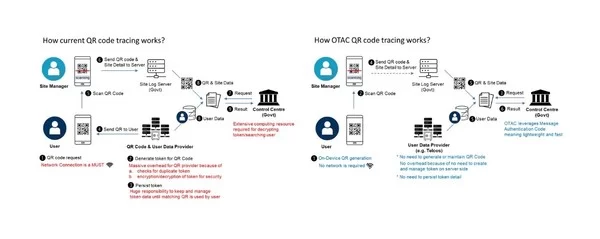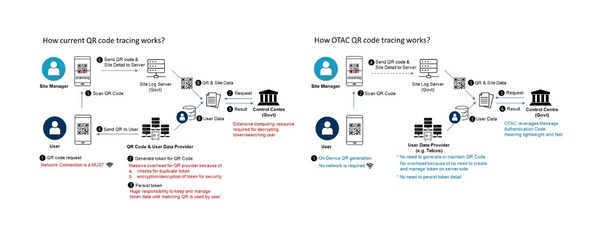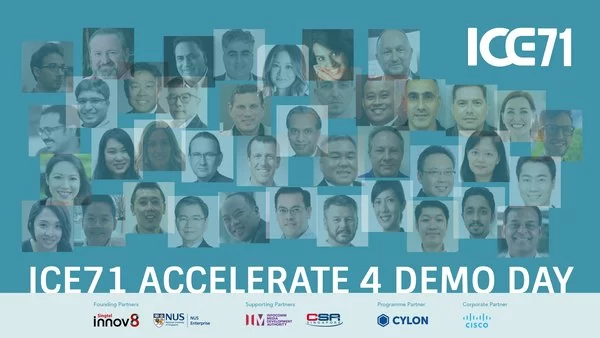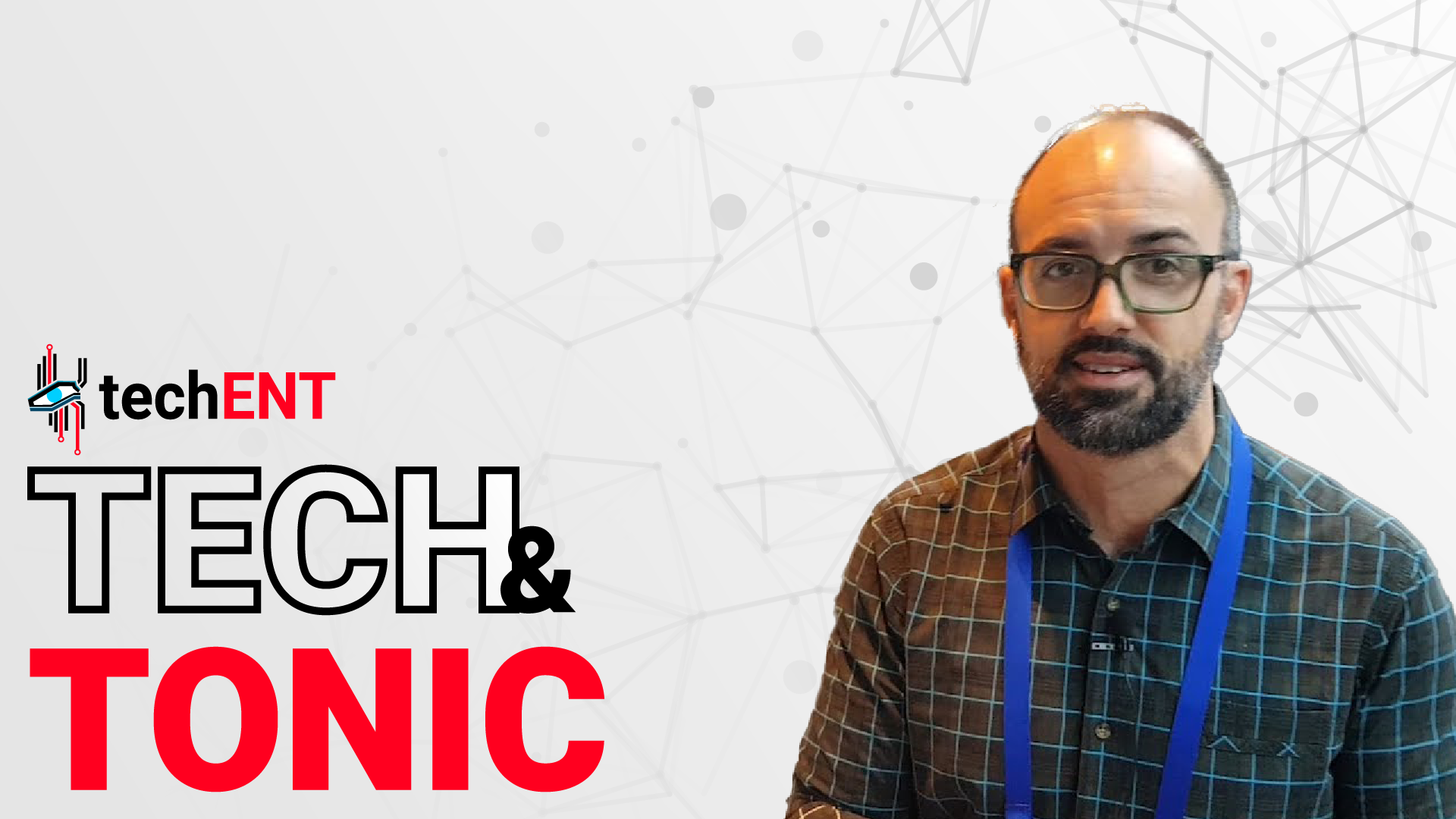- ICE71 has helped 16 cyber security start-ups from previous cohorts raise funding since 2018
- Nine start-ups from the latest cohort pitched to over 300 potential investors, partners and customers via a virtual Demo Day
SINGAPORE, June 25, 2020 — ICE71, the region’s first hub for cyber security entrepreneurs and start-ups, has strengthened start-ups’ ability to secure funding through ICE71 Accelerate, a three-month accelerator programme for early-stage cyber security start-ups. Since the programme’s inception in July 2018, 16 of the start-ups from the previous cohorts have collectively raised S$18 million, including funding from ICE71’s founding partners Singtel Innov8 and NUS Enterprise.
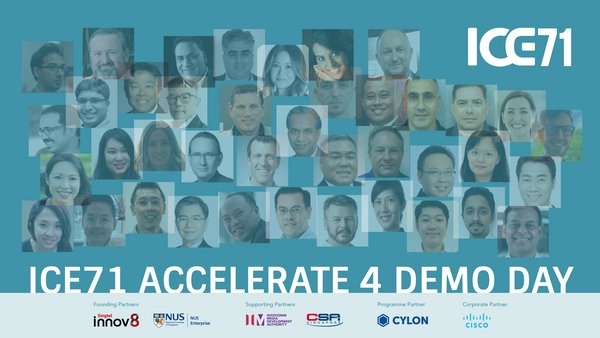 ICE71 presents 9 cybersecurity start-ups at its fourth ICE71 Accelerate Demo Day
ICE71 presents 9 cybersecurity start-ups at its fourth ICE71 Accelerate Demo Day
Today, nine cyber security start-ups from ICE71’s (Innovation Cybersecurity Ecosystem at BLOCK71) latest cohort were given the opportunity to pitch their companies and solutions to potential investors, partners and customers via a virtual Demo Day (view here). The event is particularly relevant given the increasing cyber threats related to data security and privacy as companies accelerate their digitalisation and more people study or work from home during and after the COVID-19 pandemic. These challenges have driven even greater demand globally for cyber security solutions that can help mitigate these risks.
Given the cautious investment climate during this COVID-19 pandemic, cyber security start-ups face greater challenges in getting investors to fund their ventures. With ICE71’s resources, start-ups can leverage its capabilities in mentoring and connecting them to an ecosystem of investors, partners and customers.
Mr Edgar Hardless, CEO of Singtel Innov8, said, "The COVID-19 pandemic has upended the start-up ecosystem, making it extremely difficult for start-ups to connect to investors to get funding and grow their businesses. This underscores the value of the cyber security community and network of start-ups, investors, partners and customers that Innov8 has helped ICE71 create over the past two years. ICE71’s virtual Demo Day provides our Cohort 4 start-ups a great way to showcase their technology and solutions to potential customers and investors, both locally and internationally."
Professor Freddy Boey, NUS Deputy President (Innovation and Enterprise), said, "The emergence of new challenges in these unprecedented times has presented ample opportunity for cyber security entrepreneurs to create innovative solutions. As cyber security is even more crucial than before, we need strong synergy in our ecosystem to collectively address sophisticated cyber threats. NUS and Singtel have been working closely to help strengthen our defences, having made a breakthrough under the NUS-Singtel Cyber Security Lab last year. Through ICE71’s programmes, we continue our efforts in developing industry-relevant programmes and platforms to help our start-ups go to market more quickly. We will continue to offer the resources to help cyber security entrepreneurs accelerate in their growth and expand our ecosystem with support from the Government and our industry partners."
Hailing from Singapore, Australia, Israel, the UK, the US and Poland, the current cohort of nine start-ups has developed a range of cyber security solutions that are applicable to businesses, governments and consumers. Please refer to the fact sheet in Annex A for more information on each of these start-ups.
To deliver the ICE71 Accelerate programme, ICE71 partnered with CyLon, a dedicated cybersecurity accelerator from London, UK.
To date, ICE71 Accelerate has supported a total of 34 cyber security start-ups through four cohorts, with the aim of strengthening Singapore’s growing cyber security ecosystem by attracting and developing cybersecurity start-ups with innovative competencies and new technologies. ICE71 will continue to support these start-ups through both the ICE71 Scale programme and ICE71 Community initiatives, giving them access to incubation facilities, leadership development and expert speaker programmes, networking events and the region’s leading cyber security community of investors, strategic partners, enterprises, government agencies and cyber security experts.
About ICE71
Innovation Cybersecurity Ecosystem at BLOCK71 (ICE71) is the region’s first cybersecurity entrepreneur hub. Based in Singapore, ICE71 is a partnership between Singtel Innov8, the venture capital arm of the Singtel Group, and the National University of Singapore (NUS) through its entrepreneurial arm NUS Enterprise. ICE71 is strengthening the region’s growing cybersecurity ecosystem by attracting and developing competencies and deep technologies to help mitigate the rapidly increasing cybersecurity risks in the region.
Supported by the Cyber Security Agency of Singapore (CSA) and Info-Communications Media Development Authority (IMDA), ICE71 is focused on developing and supporting early and growth stage cybersecurity entrepreneurs and start-ups from around the world. ICE71 runs a range of programmes designed to support cybersecurity individuals and start-ups from idea development to the creation, acceleration and scaling of cybersecurity start-ups. The ICE71 Inspire and ICE71 Accelerate programmes are run by CyLon, the leading global cybersecurity accelerator and active investor in early stage cybersecurity start-ups. CyLon’s global cybersecurity network and expertise, combined with ICE71’s regional knowledge and ecosystem, provides entrepreneurs and start-ups with the support and go-to-market access required to scale a successful cybersecurity business in the region.
For more information, please visit: https://ICE71.sg.
For the latest overview of Singapore’s cybersecurity start-up ecosystem, please see ICE71’s map here.
About Singtel Innov8
Singtel Innov8, the venture capital arm of the Singtel Group, invests in and partners with innovative technology start-ups globally. It has a fund size of US$250 million and its own set of decision making, approval and investment processes. Beyond funding, Singtel Innov8 is a gateway for start-ups to leverage the resources, expertise and customers of the Singtel Group, while enabling the Group to gain access to insights and emerging technologies through the global innovation and start-up ecosystems. Singtel Innov8 focuses its investments on technologies and solutions to support Singtel Group’s strategy. Headquartered in Singapore, Singtel Innov8 also has offices in San Francisco, Tel Aviv, Beijing and presence in Sydney.
For more information, please visit: http://innov8.singtel.com.
About NUS Enterprise
NUS Enterprise, the entrepreneurial arm of the National University of Singapore (NUS), plays a pivotal role in advancing innovation and entrepreneurship at NUS and beyond. It actively promotes entrepreneurship and cultivates global mind-sets and talents through the synergies of experiential entrepreneurial education, active industry partnerships, holistic entrepreneurship support and catalytic entrepreneurship outreach. Its initiatives and global connections support a range of entrepreneurial journeys and foster ecosystem building in new markets. These initiatives augment and complement the University’s academic programmes and act as a unique bridge to industry well beyond Singapore’s shores.
For more information, please visit: https://enterprise.nus.edu.sg.
Annex A: Fact Sheet on ICE71 Accelerate Cohort 4 Start-ups (in alphabetical order):
1. Assimil8 (from Australia): The global COVID-19 pandemic has forced businesses – especially small- and medium-sized enterprises (SMEs) – to operate remotely without the usual IT support. This renders them vulnerable to sophisticated cyber attacks. To enable SMEs to protect themselves in a cost-efficient manner, Assimil8 is developing a solution that can help them recognise and handle raw threat data without relying on external specialists. Assimi8’s solution, the Intuitive Data Relationship Inference System (IDRIS), uses graph technologies to provide easy-to-read visual network views for decision makers to make sense of large complex data sets. This means users can spot anomalies and identify potential network risks quickly. The solution is suitable for SMEs and their managed service providers.
2. Chainkit (from the US and originally known as PencilData): As cyber attackers switch to using more sophisticated stealth tactics to become untraceable, organisations face greater risks of such undetected attacks. Chainkit’s solution, Cyber Stealth Radar, uses military-grade tamper detection for security, forensics and compliance to expose cyber attacks in real time, preventing cyber attackers from hiding their tracks or dwelling within a network or system. Chainkit’s solution can mitigate insider threats, contain damage and immediately isolate all tampered code or data. The product is relevant to government agencies and industries like IT, the Internet of Things (IoT), financial services and healthcare.
3. GamaSec (from Israel): The recent rise of cybercrime like data breaches has driven demand for enterprises to take up cyber insurance for protection against damage, theft or corruption of electronic data. However, insurers’ expertise is inadequate to help businesses safeguard themselves from cyber attacks and restore hacked systems and lost data. GamaSec’s solution combines cybersecurity and cyber insurance, using virtual hacker technologies to identify and prevent cyber attacks via websites. Through proactive minimisation of cyber exposure and loss prevention for cyber insurance policyholders, GamaSec significantly reduces risk and helps them prevent potential cyber attacks. GamaSec’s solution is relevant to insurance providers and brokers providing cyber insurance policies to SMEs. Recently, GamaSec was chosen to be a finalist in Insurtech Hartford’s Innovation Challenge held on 18 June 2020.
4. Guardara (from the UK) focuses on fuzz testing, a software testing technique for discovering coding errors and security loopholes. Its solution, Fuzzlabs, helps product security teams discover such loopholes early by identifying software, operating and network issues in a quick and integrated manner. Fuzzlabs is able to identify software flaws and exploitable security vulnerabilities that were previously unknown, test web applications and services, and secure code. The solution is targeted at enterprise product security teams that work on industrial control systems, IoT technologies, medical devices, telecommunications, defence, aerospace, and automotive.
5. Kapalya (from the US): Kapalya’s Encryption Management Platform (EMP) addresses organisational needs for files and folders to be encrypted across multiple platforms, like desktops, portable devices (including laptops, smartphones and tablets), cloud storage and servers, especially when some of these are used remotely with more people working from home during COVID-19. This means that file sharing must be encrypted end-to-end across entire organisations regardless of where their data resides. EMP provides organisations with a seamless method to do so and can help counter attacks by ransomware. One major use for this is in recovering lost data after a ransomware breach. The platform can be integrated with any network and device, and is industry-agnostic.
6. Kinnami (from the US): Migrating data to cloud storage raises concerns over data security, impact on users of the initial migration and cost management. Furthermore, as more people work or study from home during the COVID-19 pandemic, there is a greater demand for security solutions to help them secure sensitive data. Kinnami’s solution, AmiShare, enables organisations to manage data security by defining dynamic policies that decide who can access the data and where the data should be stored – in the cloud, data centres, or end-user devices. This is done via fragmented and encrypted storage to secure confidential data across devices and users everywhere, even as the data moves along on data-sharing applications. The product is relevant to the financial services, healthcare, professional services like legal services, and supply chain management industries, academia, and national defence.
7. neoEYED (from the US): neoEYED has developed an Artificial Intelligence (AI) solution that helps banks, fintech applications and e-commerce businesses secure their digital identities and accounts from unauthorised users to prevent fraud. Its solution uses AI to learn and recognise users’ behaviour, based on how they interact with web and mobile applications and use their devices, and raises an alert if there is suspicious activity on an account. It is unobtrusive as it continuously monitors user behaviour without seeking additional permissions or personal information from the user. The solution is suitable for any industry.
8. Olympus Sky Technologies (from Poland) provides secure communication and credential management for IoT-related hardware and virtual (concerning software and electronic images, etc.) assets. Its solution, Autonomous Key Management (AKM), enables enterprises to efficiently create and authenticate credentials for IoT applications, facilitating the adoption of these advanced technologies across industries. As IoT technologies are often connected in complex supply chains that need authentication at each point, it was costly to implement and maintain traditional security solutions which cannot be scaled for these needs. Olympus Sky’s solution, Autonomous Key Management (AKM), simplifies this and significantly decreases the total number of vulnerabilities that unauthorised users can access and steal data from. Users thus get security in a cost- and time-efficient manner. Although this solution is primarily for industrial IoT applications, it also has considerable traction in transport and mobility.
9. Scantist (from Singapore) finds and addresses vulnerabilities in software applications and products which have been the preferred target for hackers worldwide in recent years. Scantist’s solution, Scantist Software Composition Analysis (SCA), secures apps by scanning all software codes and binaries in a single platform with high accuracy. The solution is relevant to SMEs and large enterprises in Singapore, Southeast Asia and China that need to maintain or develop software applications.
Photo – https://photos.prnasia.com/prnh/20200625/2841275-1?lang=0
Related Links :
https://ICE71.sg

